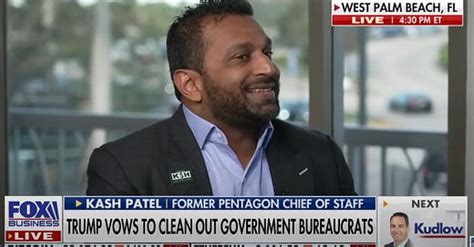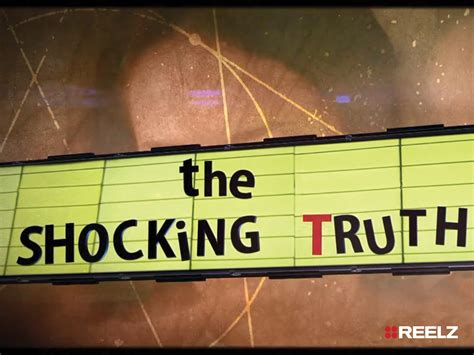
Kash Patel, a former aide to President Donald Trump, is suing MSNBC analyst Frank Figliuzzi for defamation, alleging Figliuzzi falsely stated that Patel had been investigated by the FBI for leaking classified information. The lawsuit, filed on Tuesday in Fairfax County, Virginia, claims Figliuzzi’s statements, made during an MSNBC appearance in September 2023, were a “fabricated lie” that damaged Patel’s reputation and career.
Patel’s lawsuit stems from comments Figliuzzi made on MSNBC’s “Deadline: White House,” where he discussed Patel’s role in Trump’s administration and his potential access to classified materials. According to the lawsuit, Figliuzzi stated, “This is the same Kash Patel who was investigated, though never charged, with leaking classified information.” Patel argues that this statement is demonstrably false and that he was never the subject of an FBI investigation for leaking classified information. He asserts that Figliuzzi’s remarks were made with malice and reckless disregard for the truth. The lawsuit seeks compensatory and punitive damages, as well as attorney’s fees. Patel is represented by counsel and intends to vigorously pursue the case. He maintains that Figliuzzi’s statements have caused significant harm to his professional standing and personal reputation. This legal action marks the latest chapter in Patel’s public profile, which has been marked by his controversial tenure in the Trump administration and his subsequent media appearances.
The lawsuit details Patel’s career trajectory, highlighting his roles as a federal public defender, an international terrorism prosecutor at the Department of Justice, and a staffer for the House Intelligence Committee. It emphasizes his efforts to expose alleged wrongdoing within the FBI and the Justice Department related to the investigation of Russian interference in the 2016 election. Patel claims that his efforts made him a target of politically motivated attacks by individuals within the intelligence community and the media. The lawsuit argues that Figliuzzi’s statements fit into this pattern of defamation.
Figliuzzi, a former Assistant Director for Counterintelligence at the FBI, has not yet issued a formal response to the lawsuit. MSNBC has also not commented on the legal action. This case raises questions about the responsibilities of media commentators when discussing individuals with controversial backgrounds and the potential legal ramifications of making unsubstantiated claims. The outcome of the lawsuit could have implications for the media landscape and the standards of reporting and commentary on political figures and sensitive national security matters.
The suit also revisits Patel’s involvement in various controversial events during the Trump administration, including his role in the Ukraine scandal and his efforts to declassify documents related to the Russia investigation. These issues are expected to be central to the legal arguments presented by both sides. The suit claims Figliuzzi’s statement was not only false but also part of a deliberate effort to damage Patel’s reputation and undermine his credibility.
Detailed Background and Context
Kash Patel’s career has been characterized by a series of high-profile and often contentious roles within the U.S. government and the media landscape. Before his involvement in the Trump administration, Patel served as a federal public defender, representing individuals accused of various crimes. He later transitioned to the Department of Justice, where he worked as an international terrorism prosecutor, focusing on cases involving individuals and organizations linked to terrorism. These experiences provided him with a deep understanding of the legal system and national security issues.
Patel’s career trajectory took a significant turn when he joined the House Intelligence Committee, where he served as a staffer under then-Chairman Devin Nunes. In this role, Patel played a key role in investigating the origins of the FBI’s investigation into Russian interference in the 2016 election. He was instrumental in drafting a controversial memo that alleged the FBI had abused its surveillance authority in obtaining a warrant to monitor Carter Page, a former Trump campaign advisor. This memo, which was released to the public in 2018, sparked a fierce debate about the integrity of the FBI and the Justice Department.
During his time on the House Intelligence Committee, Patel became a vocal critic of the FBI and the Justice Department, accusing them of political bias and misconduct. He argued that the investigation into Russian interference was politically motivated and that the FBI had improperly targeted individuals associated with the Trump campaign. These accusations made him a controversial figure among Democrats and some members of the intelligence community, who accused him of spreading misinformation and undermining the credibility of the FBI.
In 2019, Patel joined the Trump administration as a senior advisor to the Director of National Intelligence, John Ratcliffe. In this role, he played a key role in declassifying documents related to the Russia investigation. He also worked on efforts to reform the intelligence community, aiming to streamline operations and improve oversight. Patel’s appointment to this position was met with criticism from Democrats, who argued that he was unqualified and that his appointment was politically motivated.
Following Trump’s defeat in the 2020 election, Patel continued to be a prominent voice in conservative media. He has appeared on numerous television and radio programs, offering his perspective on a range of issues, including national security, politics, and the investigation into the January 6th Capitol riot. He has also written extensively on these topics, often promoting conspiracy theories and misinformation.
Frank Figliuzzi, on the other hand, brings a wealth of experience from his career at the FBI. He served as the Assistant Director for Counterintelligence, overseeing the FBI’s efforts to protect U.S. secrets from foreign espionage. His expertise in national security and counterintelligence makes him a sought-after commentator on television and in print. Figliuzzi’s commentary often focuses on the threats facing the United States, including terrorism, cyber warfare, and foreign interference in elections. He provides insights into the inner workings of the intelligence community and offers analysis on current events.
The current lawsuit filed by Patel against Figliuzzi highlights the tensions between individuals who have served in government and those who provide media commentary on their actions. It also underscores the challenges of accurately reporting on complex national security issues in a polarized political environment.
Legal Arguments and Potential Outcomes
The crux of Patel’s lawsuit rests on the claim that Figliuzzi made a false and defamatory statement about him during an MSNBC appearance. To prevail in a defamation lawsuit, Patel must prove several key elements:
-
False Statement: Patel must demonstrate that Figliuzzi’s statement – that Patel was investigated by the FBI for leaking classified information – was false. This will likely involve presenting evidence that no such investigation ever occurred or that the investigation did not target Patel.
-
Publication: Patel must show that the statement was published, meaning it was communicated to a third party. In this case, the publication element is easily satisfied, as the statement was made on a widely viewed MSNBC program.
-
Defamatory Meaning: Patel must prove that the statement was defamatory, meaning it harmed his reputation and exposed him to hatred, ridicule, or contempt. Given the seriousness of being accused of leaking classified information, this element is likely to be met.
-
Fault: Patel must establish the level of fault required under defamation law. As a public figure, Patel must prove that Figliuzzi acted with “actual malice,” meaning he knew the statement was false or acted with reckless disregard for its truth or falsity. Proving actual malice is a high bar, requiring Patel to demonstrate that Figliuzzi had serious doubts about the truth of his statement but proceeded to make it anyway.
-
Damages: Patel must show that he suffered damages as a result of Figliuzzi’s statement. These damages could include reputational harm, emotional distress, and economic losses. Patel will likely need to present evidence of how Figliuzzi’s statement has negatively impacted his career and personal life.
Figliuzzi’s defense will likely focus on challenging these elements. He may argue that his statement was not false, that he had a reasonable basis to believe it was true, or that Patel has not suffered any damages. He may also argue that his statement was protected by the First Amendment, which provides broad protection for speech on matters of public concern.
The outcome of the lawsuit could have significant implications for the media landscape. If Patel prevails, it could send a message to media commentators that they must be careful to verify the accuracy of their statements, especially when discussing individuals with controversial backgrounds. It could also embolden other public figures to sue media outlets for defamation.
Conversely, if Figliuzzi prevails, it could strengthen the protections for speech on matters of public concern and make it more difficult for public figures to win defamation lawsuits. It could also encourage media outlets to be more aggressive in their reporting and commentary on political figures and sensitive national security matters.
The lawsuit is likely to be a lengthy and complex legal battle, involving extensive discovery, depositions, and court hearings. The outcome will depend on the evidence presented by both sides and the interpretation of the law by the judge and jury.
The First Amendment and Defamation
The First Amendment to the United States Constitution protects freedom of speech, but this protection is not absolute. Defamation, which is the act of making false statements that harm someone’s reputation, is not protected by the First Amendment. However, the Supreme Court has established a high standard for defamation lawsuits brought by public figures, such as Kash Patel.
In the landmark case of New York Times Co. v. Sullivan (1964), the Supreme Court held that public officials must prove that a defamatory statement was made with “actual malice” – that is, with knowledge that it was false or with reckless disregard for whether it was false or not. This standard was later extended to public figures, individuals who have achieved widespread fame or notoriety or who have voluntarily injected themselves into a public controversy.
The actual malice standard is intended to protect freedom of speech by ensuring that journalists and commentators are not unduly constrained by the fear of being sued for defamation. It recognizes that public figures have chosen to enter the public arena and should therefore be subject to greater scrutiny than private individuals.
In the context of Patel’s lawsuit against Figliuzzi, the actual malice standard will be a key factor. Patel will need to present evidence that Figliuzzi knew his statement was false or acted with reckless disregard for its truth or falsity. This will likely involve examining Figliuzzi’s sources of information and his state of mind at the time he made the statement.
The First Amendment also protects “opinion,” which is generally not considered defamatory. However, the line between fact and opinion can be blurry, and courts have often struggled to define it. A statement of opinion is protected if it cannot be reasonably interpreted as stating actual facts about an individual.
In this case, Figliuzzi may argue that his statement was an opinion based on his understanding of Patel’s background and his own experiences in the intelligence community. However, Patel will likely argue that Figliuzzi’s statement was presented as a statement of fact, not opinion, and that it was therefore defamatory.
The Broader Implications for Media and Politics
The lawsuit between Kash Patel and Frank Figliuzzi highlights the increasingly polarized nature of the media landscape and the challenges of reporting on complex national security issues in a politically charged environment.
In recent years, the media has become increasingly fragmented, with individuals able to choose news sources that align with their own political beliefs. This has led to the rise of partisan media outlets that often prioritize advocacy over objective reporting.
In this environment, it can be difficult to distinguish between factual reporting and opinionated commentary. News consumers may be exposed to biased or inaccurate information, which can further deepen political divisions.
The lawsuit also underscores the challenges of reporting on national security issues, which are often shrouded in secrecy and involve complex legal and ethical considerations. Journalists and commentators must be careful to verify the accuracy of their information and to avoid disclosing classified information.
The outcome of the lawsuit could have a chilling effect on media reporting on national security issues. If media outlets fear being sued for defamation, they may be less likely to report on controversial topics or to criticize government officials.
Conversely, if the lawsuit is unsuccessful, it could embolden media outlets to be more aggressive in their reporting and commentary on national security issues. This could lead to greater transparency and accountability, but it could also increase the risk of inaccurate or biased reporting.
The lawsuit also raises questions about the role of social media in disseminating information and shaping public opinion. Social media platforms have become increasingly important sources of news and information, but they are also vulnerable to the spread of misinformation and disinformation.
In the context of the lawsuit, social media could be used to amplify the defamatory statements made by Figliuzzi, further damaging Patel’s reputation. It could also be used to spread misinformation about the lawsuit itself, making it difficult for the public to understand the facts of the case.
The lawsuit between Kash Patel and Frank Figliuzzi is a complex and consequential legal battle that could have significant implications for the media landscape, the First Amendment, and the way we report on national security issues. The outcome will depend on the evidence presented by both sides and the interpretation of the law by the judge and jury.
The Role of Intent and Recklessness
A central question in this case revolves around the intent and actions of Frank Figliuzzi when making the statement about Kash Patel. To prove defamation under the “actual malice” standard, Patel’s legal team must demonstrate that Figliuzzi either knew the statement was false or acted with reckless disregard for whether it was true or false. This is not simply about proving the statement was inaccurate; it requires showing a deliberate or highly negligent disregard for the truth.
“Reckless disregard” is a legal term that requires a high degree of awareness of probable falsity. It means that Figliuzzi entertained serious doubts as to the truth of his statement. This might be evidenced by a lack of proper investigation, reliance on unreliable sources, or a pre-existing bias that colored his perception of the facts.
Patel’s legal team may attempt to show that Figliuzzi had access to information that contradicted his statement, or that he failed to conduct even basic due diligence to verify the claim. They might also argue that Figliuzzi’s position as a former high-ranking FBI official implies a higher standard of care in verifying information, especially when making public statements.
Conversely, Figliuzzi’s defense will likely focus on establishing that he had a reasonable basis for believing his statement to be true. This might involve presenting evidence of information he received from sources he considered reliable, or arguing that his statement was a reasonable interpretation of publicly available information. He might also argue that his statement was made in the context of a broader discussion about Patel’s controversial role in the Trump administration and should be protected as opinion.
The burden of proof rests on Patel to demonstrate actual malice with “clear and convincing evidence,” a standard that is higher than the preponderance of the evidence standard used in most civil cases. This means that Patel must persuade the jury that it is highly probable that Figliuzzi acted with actual malice.
Frequently Asked Questions (FAQ)
1. What is the core issue in the lawsuit Kash Patel filed against Frank Figliuzzi?
The core issue is whether Frank Figliuzzi defamed Kash Patel by falsely stating on MSNBC that Patel had been investigated by the FBI for leaking classified information. Patel claims this statement is untrue and has damaged his reputation and career.
2. What does Kash Patel need to prove to win the defamation lawsuit?
As a public figure, Kash Patel needs to prove that Figliuzzi’s statement was false, published, defamatory, and made with “actual malice.” Actual malice means Figliuzzi either knew the statement was false or acted with reckless disregard for its truth or falsity. Patel also needs to demonstrate he suffered damages as a result of the statement.
3. What is Frank Figliuzzi’s potential defense in this case?
Figliuzzi’s defense could argue that his statement was not false, that he had a reasonable basis to believe it was true, that Patel has not suffered damages, or that his statement was protected under the First Amendment as opinion or speech on a matter of public concern.
4. What is “actual malice” in the context of defamation law, and why is it relevant here?
“Actual malice” is a legal standard that requires public figures suing for defamation to prove the defendant knew the statement was false or acted with reckless disregard for its truth. It is relevant because Kash Patel, as a public figure, must meet this higher standard to win his lawsuit against Figliuzzi.
5. What are the potential implications of the lawsuit’s outcome for media reporting on national security issues?
If Patel wins, it could make media commentators more cautious about making statements about public figures, potentially chilling free speech. If Figliuzzi wins, it could strengthen protections for speech on matters of public concern, encouraging more aggressive reporting, but also increasing the risk of inaccurate or biased reporting.
Impact on Public Perception and Reputation Management
The lawsuit is undoubtedly impacting both Kash Patel’s and Frank Figliuzzi’s public perception. For Patel, the lawsuit is an attempt to restore his reputation and counter what he perceives as a false narrative. By filing the lawsuit, he is signaling that he is willing to fight back against what he believes are unfair attacks. However, the lawsuit also draws renewed attention to his controversial past and his involvement in various political controversies.
For Figliuzzi, the lawsuit could damage his credibility as a commentator and expert on national security issues. If he is found to have made false statements, it could undermine his reputation for accuracy and impartiality. However, the lawsuit could also be seen as an attempt to silence critical voices and stifle debate on important issues.
The lawsuit also highlights the challenges of reputation management in the digital age. In an era of social media and instant communication, it can be difficult to control the narrative and counteract false or misleading information. The lawsuit will likely be heavily scrutinized and debated online, further shaping public perception of both Patel and Figliuzzi.
Both individuals will need to carefully manage their public image and communicate their perspectives effectively. Patel will likely emphasize his commitment to the truth and his desire to clear his name. Figliuzzi will likely defend his statements and argue that they were made in good faith and based on his understanding of the facts.
The outcome of the lawsuit will undoubtedly have a lasting impact on their reputations and careers.
Examining the Evidence and Potential Witnesses
The success or failure of Patel’s lawsuit will heavily depend on the evidence presented and the credibility of the witnesses who testify. Key pieces of evidence could include:
- FBI documents: Any documents related to investigations involving Kash Patel, including internal memos, emails, and investigative reports. Patel will likely seek to obtain these documents through discovery to demonstrate that he was never the subject of an investigation for leaking classified information.
- MSNBC transcripts and recordings: Transcripts and recordings of Figliuzzi’s appearance on “Deadline: White House” will be crucial for establishing the exact language he used and the context in which he made the statement.
- Figliuzzi’s sources: Information about Figliuzzi’s sources for the statement, including any documents, emails, or conversations he had with individuals who claimed Patel was investigated for leaking classified information. Patel’s legal team will likely seek to depose these sources to determine their credibility and the basis for their claims.
- Expert testimony: Expert testimony from legal scholars, media experts, and former intelligence officials could be used to support Patel’s claims and to challenge Figliuzzi’s defenses.
Potential witnesses in the case could include:
- Kash Patel: Patel himself will likely testify about the impact of Figliuzzi’s statement on his reputation and career. He may also be asked about his involvement in various controversial events during the Trump administration.
- Frank Figliuzzi: Figliuzzi will likely be called to testify about the basis for his statement and his state of mind at the time he made it.
- MSNBC personnel: Producers, editors, and other personnel at MSNBC may be called to testify about the network’s editorial policies and procedures for verifying information.
- Former FBI officials: Former FBI officials could be called to testify about the agency’s investigations and the standards for handling classified information.
- Reputation management experts: Experts in reputation management could be called to testify about the potential damage caused by Figliuzzi’s statement and the steps Patel has taken to mitigate the damage.
The credibility of these witnesses will be crucial in determining the outcome of the lawsuit. The jury will need to assess the witnesses’ biases, motives, and knowledge of the facts.
The Importance of Context: The Trump Administration and Media Scrutiny
The lawsuit is unfolding against a backdrop of intense political polarization and heightened media scrutiny of individuals associated with the Trump administration. Kash Patel’s involvement in various controversial events during Trump’s presidency has made him a target of criticism from Democrats and some members of the media.
The context of the Trump administration is relevant to the lawsuit in several ways:
- Political motivations: Patel may argue that Figliuzzi’s statement was politically motivated and part of a broader effort to discredit him because of his association with Trump.
- Media bias: Patel may argue that the media has been biased against him and that Figliuzzi’s statement reflects this bias.
- Public interest: Figliuzzi may argue that his statement was made in the public interest because it concerned a matter of public concern – Patel’s role in the Trump administration and his access to classified information.
The jury will need to consider the context of the Trump administration when evaluating the evidence and assessing the credibility of the witnesses. They will need to determine whether Figliuzzi’s statement was a fair and accurate assessment of Patel’s actions or whether it was motivated by political bias or malice.
The Long Road Ahead: Potential Appeals and Further Litigation
Regardless of the outcome at the trial court level, it is likely that the losing party will appeal the decision. The appeals process can be lengthy and complex, potentially extending the legal battle for years.
The appeals court will review the trial court’s decision to determine whether any errors of law were made. If the appeals court finds that errors were made, it may reverse the trial court’s decision and order a new trial.
In addition to the defamation lawsuit, it is possible that other legal actions could arise from the dispute between Patel and Figliuzzi. For example, if Patel is successful in his defamation lawsuit, he may consider filing additional lawsuits against other individuals or media outlets who have made similar statements.
The legal battle between Patel and Figliuzzi is likely to be a long and protracted affair, with significant implications for both individuals and the media landscape. The outcome will depend on the evidence presented, the credibility of the witnesses, and the interpretation of the law by the courts.









